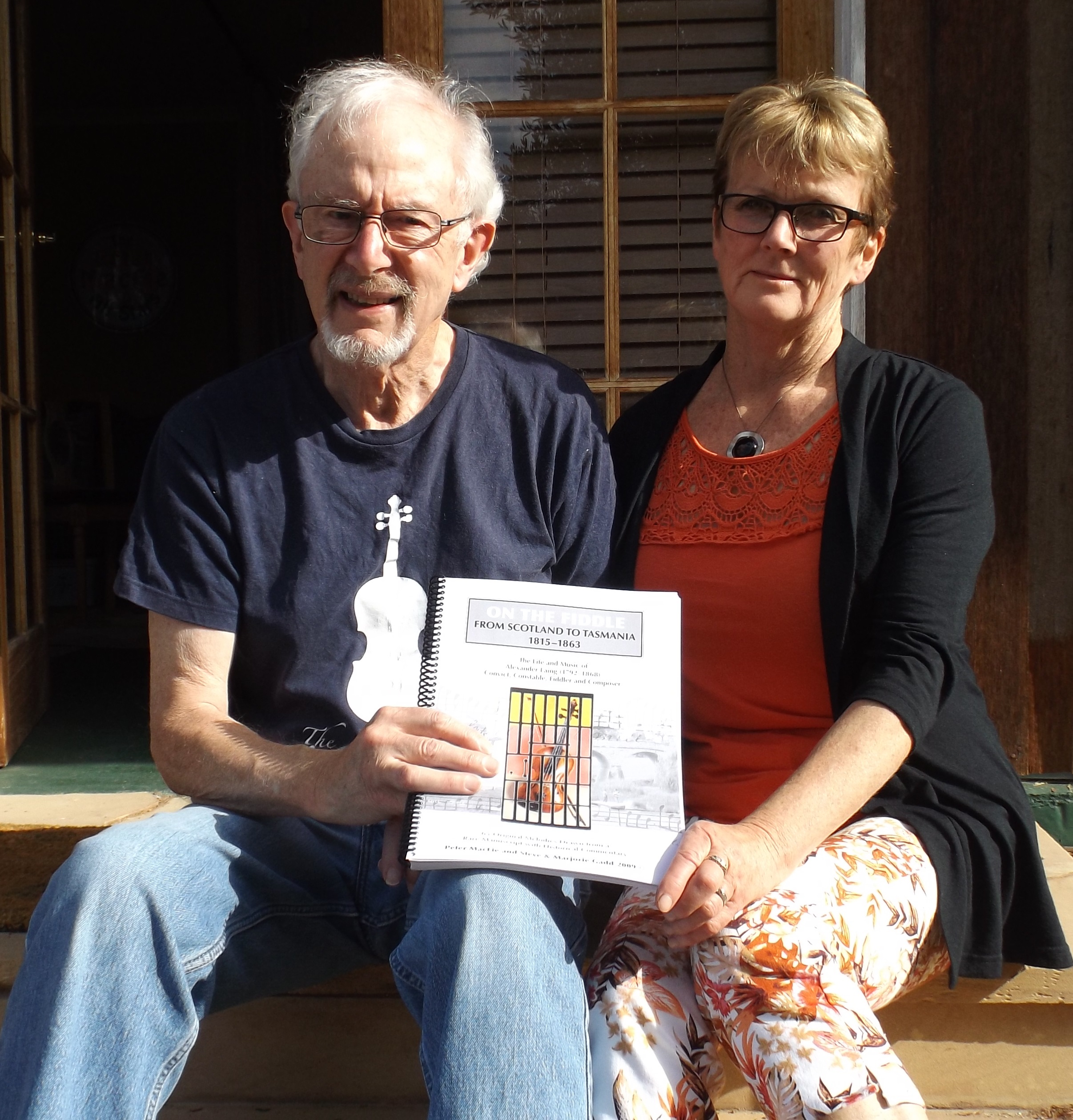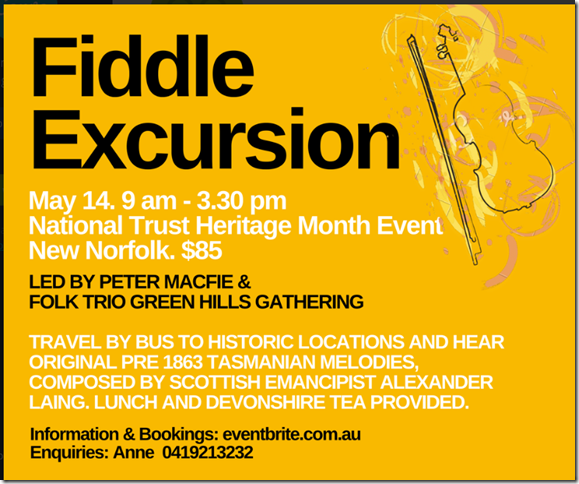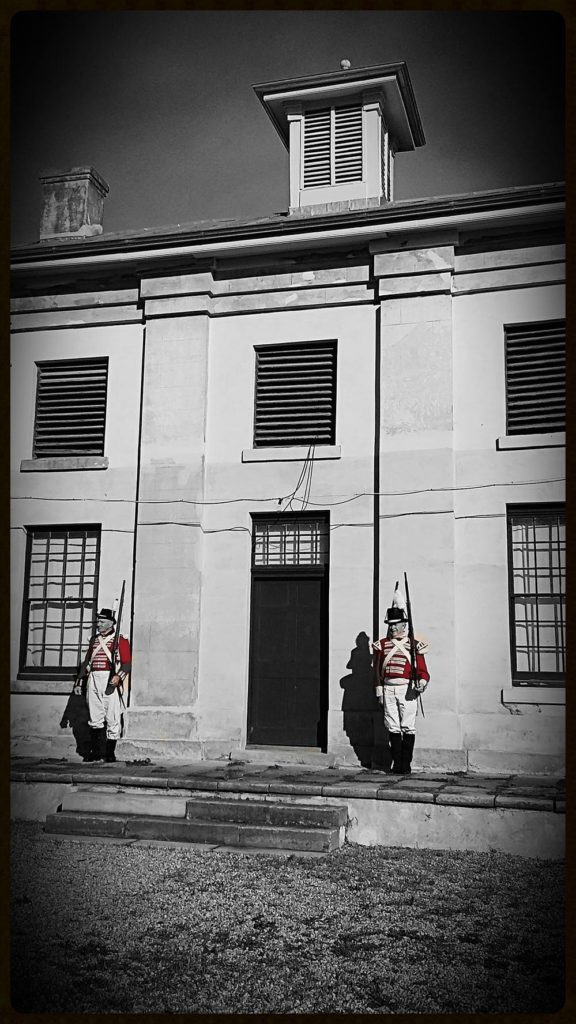
On Sunday May the 14th 2017 the Derwent Valley was alive with the sound of music. It might seem a little cliché, but what better way to describe the complimentary sounds of guitar and violin echoing around the valley. The valley and some of the many heritage listed homesteads, churches and significant locations such as Willow Court, played host to people from all over Tasmania. First of its kind here in the valley the day showcased many nineteenth century Australian bush style folk tunes written by Alexander Laing.
Originally from Scotland, Laing was sentenced to seven years for stealing and transported to Sydney before moving to Van Diemen’s Land at the age of twenty-three. On receiving a ticket of leave, Laing went on to become Chief Constable of Police in Sorrell, Richmond and New Norfolk. Musically minded, Laing played the violin and wrote over sixty original compositions. Recently uncovered by retired Port Arthur historian Peter MacFie, these once popular pieces are again evoking the imaginations of Tasmanians here in the valley.
Played at their place of inspiration by the energising Sorrell based trio the ‘Green Hills Gathering’ the program consisted of an exciting variance of waltzes, hornpipes, marches and jigs each played with devotion to the composer’s intent. The assertive and vibrant melodies had the audience tapping their toes and bobbing their heads with the music. Even the frogs and kookaburras in the picturesque setting of Glenleith joined in with their own choral contribution. With so many standout tunes it was hard to pick a crowd favourite though the Tasmanian Waltz played at Tasmania’s oldest church, St. Matthews was of particular appeal for its patriotic quality, dedicated to the renaming of Tasmania in 1856.
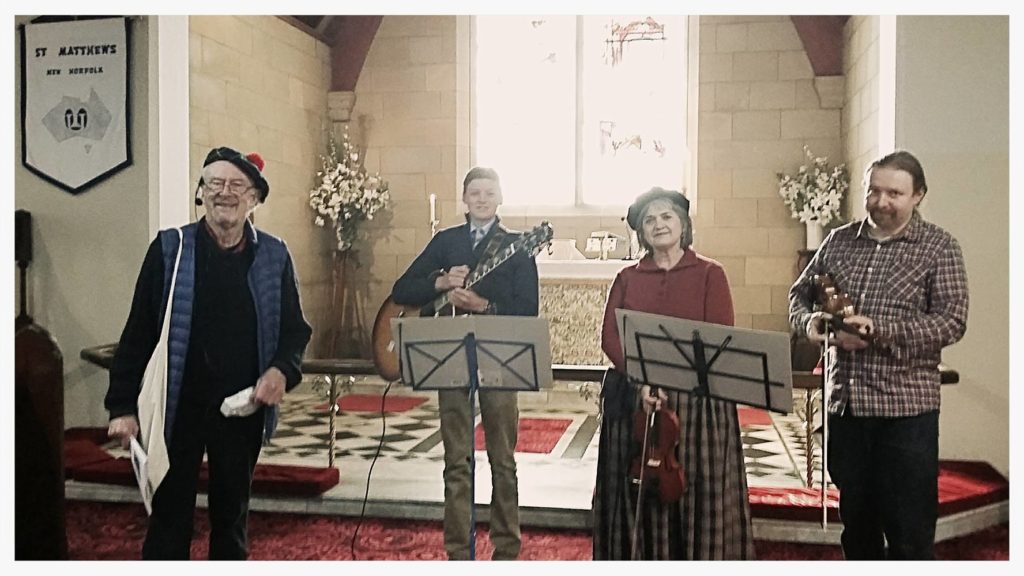
Organised and proudly presented by the Friends of Willow Court, the dedicated members were pleased to provide specialised commentary highlighting the rich history of the Derwent Valley, including the Barracks at Willow Court where Laing occupied the role of Upper Wardsman. The site which is rarely open to the public, offered an ambience reminiscent of colonial times with many tunes dedicated to Dr Huston and his family. Additionally during his time at Willow Court Laing wrote a testimonial acknowledging Huston’s preference for non violence and threatening care of asylum patients. The tour included an historical walk around the heritage listed gardens and Frascati House where Huston and his family resided. Guests were greeted to a mini market of locally crafted items and members of the Frascati House Committee were there to share their abundance of knowledge and insight of Frascati’s history.
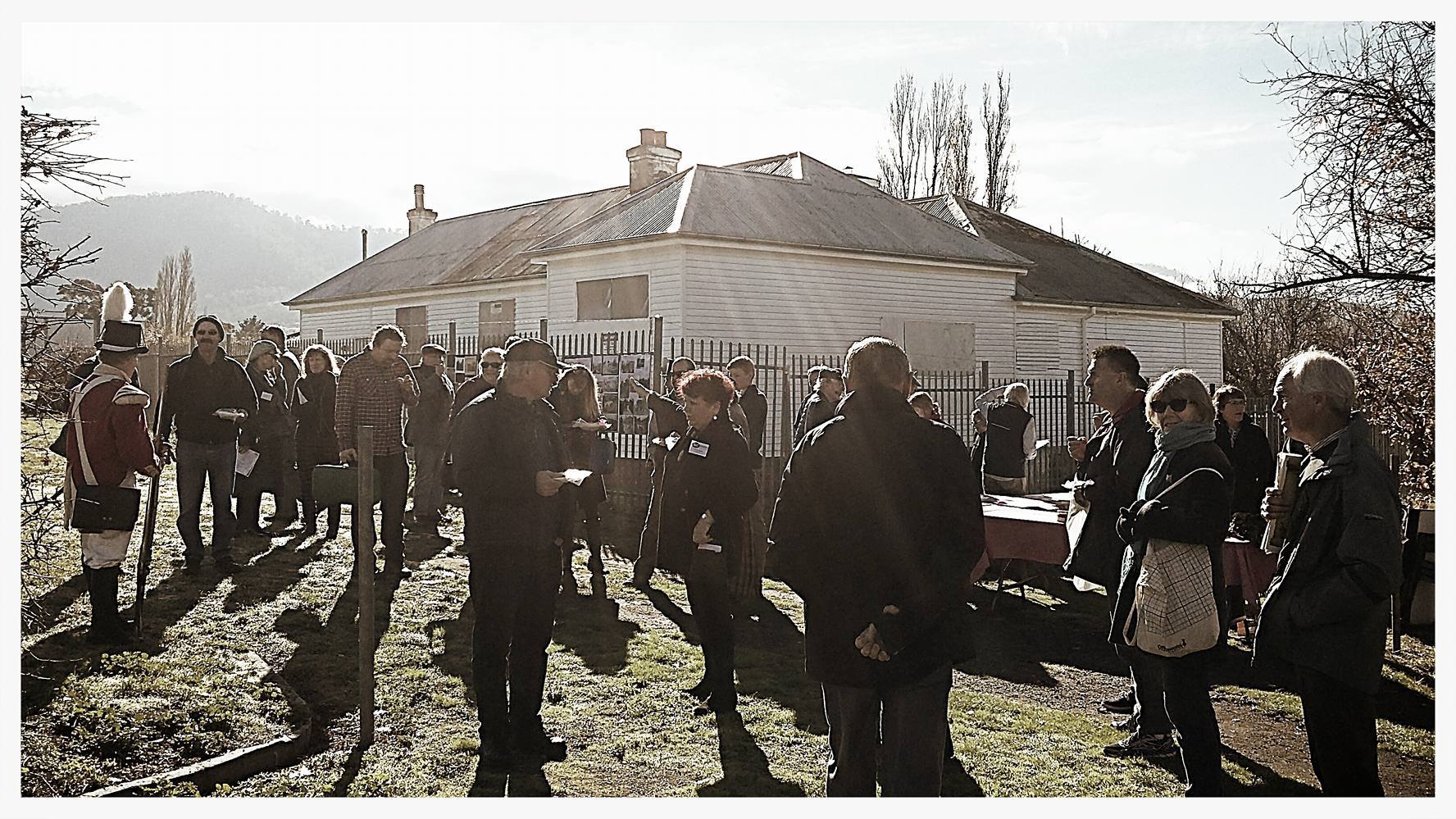
Reminders of Tasmania’s rich colonial history can be found in the numerous historical buildings and streetscapes of the Derwent Valley. A particular highlight of the tour included St. Pauls Uniting Church where Laing’s children were baptised. In an effort to right old wrongs, Laing acknowledged his loyalty to the crown by naming his children after British royalty. Unique to many, the church was of particular appeal for its well preserved original furnishings. The wooden cedar pews and brass pipe floor heating stealing the limelight of the show. The audience did well to ad heed the advice of the Royal Marines who gingerly warned “If you smell something burning, it is just your sole”.
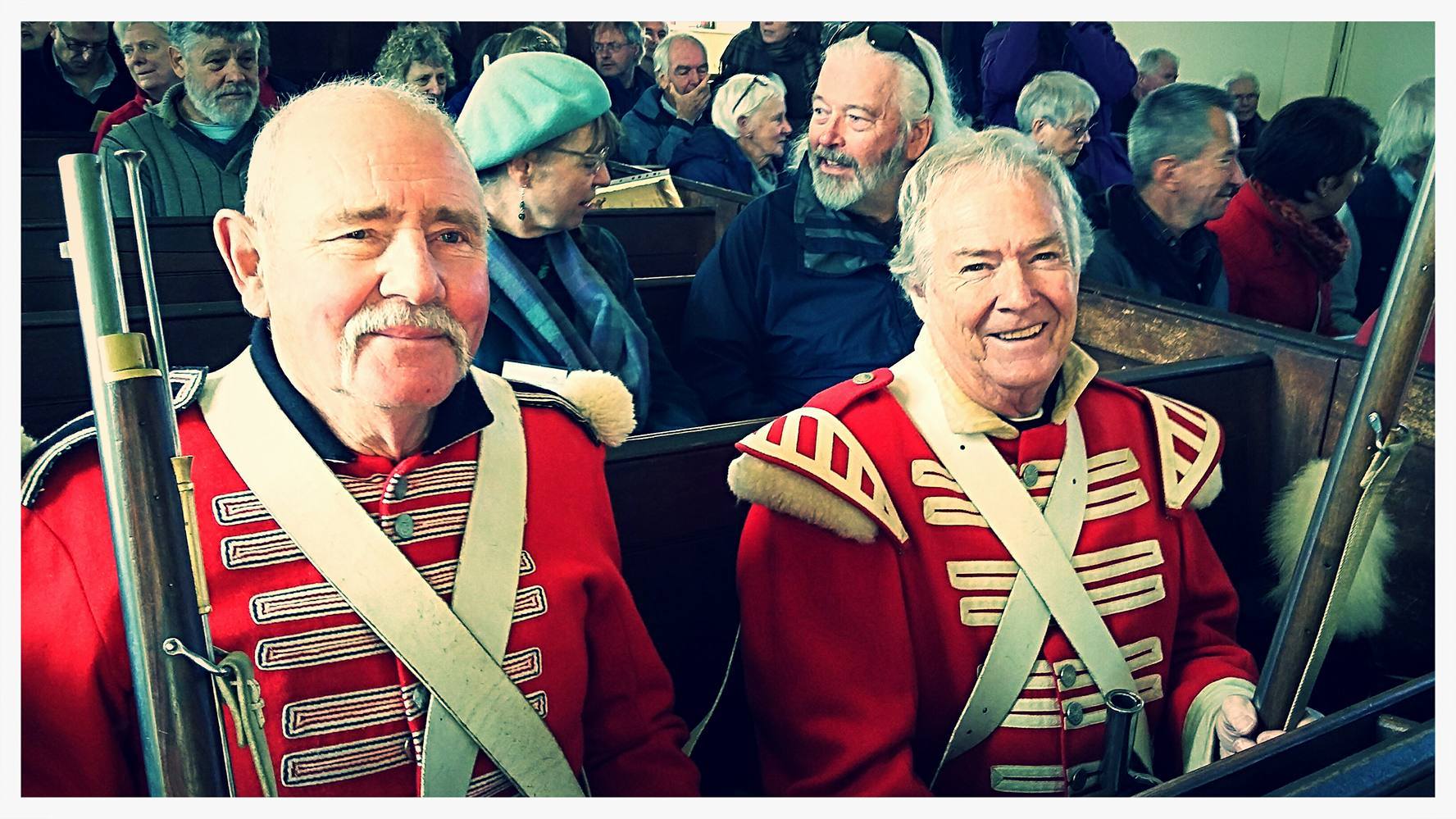
With so many sites to visit and two bus loads full of enthusiasts the red coated Royal Marines ensured the day ran smoothly. This representation, being free from the traumatic aspects of the war, instead offered an artistic revival of the Derwent Rifles, who were a volunteer rifle company who paraded in New Norfolk during the mid 1800’s. With rifles left at the door, the Lachlan Hall, dressed for a Mother’s Day luncheon was well prepared for the hungry onslaught.
Guests became acquainted over a hearty meal of soups and sandwiches, and in the process identified connections to family, locations and Alexander Laing himself. On stage the string ensemble gathered to the admiration of the crowd. The lively trio entertained once again with a colourful array of allegro marches dedicated to the Derwent Rifles.
The successful day concluded with a momentous performance at the impressive homestead Glen Derwent. Formally the Elwin Hotel the property has a rich history telling the story of Irish leader William Smith O’Brien who resided at the property until his release in 1854. The congregation collected in the Oast House where the acoustics of the small stone building inevitably changed the sound of the music, creating an electrifying climax to the day’s adventures.
The autumn colours and country cottage flowers delivered a lovely backdrop for a garden tea party of scones and jam. Guests mingled and reflected on the days events. Members of the Friends of Willow Court were inundated with compliments acknowledging how the Fiddle Excursion had exceeded all expectations. Guests especially looked forward to the prospect of similar excursions in the future.
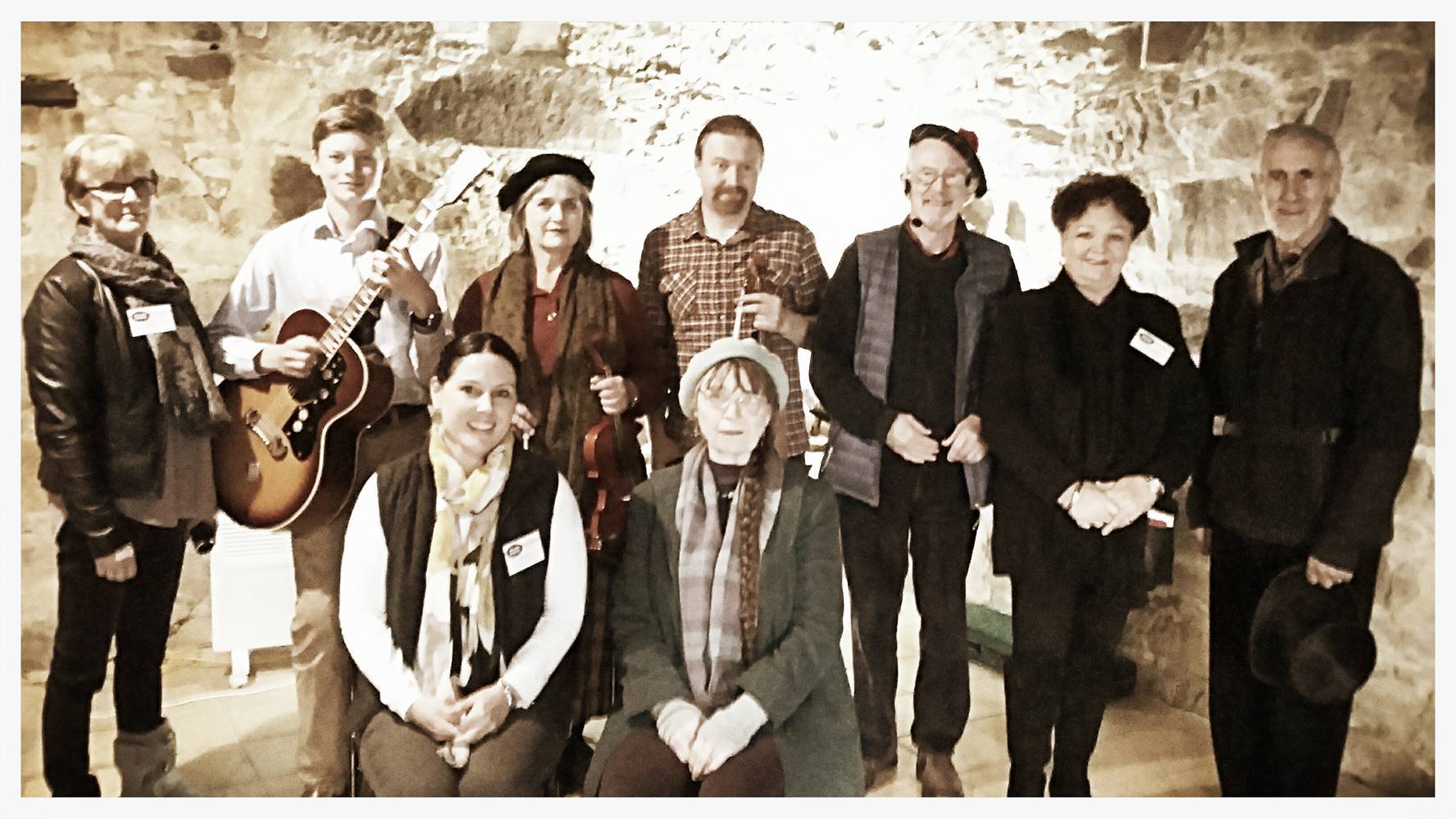
Delighted to receive the positive and rewarding feedback on the day’s achievements, the Friends of Willow Court were also pleased to have raised funds for the Willow Court Restoration Fund, and acknowledge and thank all stakeholders who contributed to the success of the event.
For more images click below
My thanks to Nadia Lobb for this report and images.
